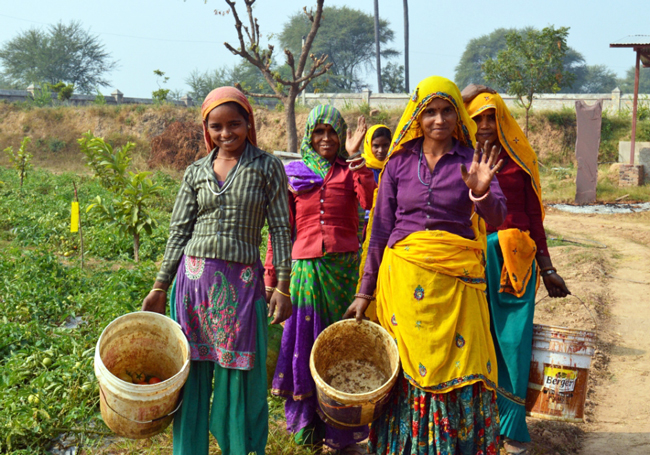
By Zahra Habib
Researchers on development, particularly those focused on women in the Global South, have always struggled to find effective ways of turning their findings into practical, innovative solutions with far-reaching effects. Having to consider the geographic, spatial, and temporal relevance and lifespan of their work already sets the standards high, before issues of ethics, sustainability, and accuracy come into the picture.
The Growth and Economic Opportunities for Women Program (GrOW) is an academic research-oriented initiative that places much-needed emphasis on the before and after of the research process. With 14 projects in 50 countries, the program, which was launched in 2013, aims to provide governments with access to clear and compelling evidence of the needs of poor and vulnerable women, in regions where this information is missing or incomplete.
GrOW’s approach to research and dissemination challenges the norm of intensive research as necessitating deep specialization and narrow boundaries. Instead, each one of their 36-month long projects are conducted by teams of people from of a wide array of disciplines, research methods, and professional backgrounds, leading to comprehensiveness, and better results overall.
“Something that’s really important and innovative about the GrOW projects is that they are by design multidisciplinary, multi methods, multi-institutional,” says Dr. Kate Grantham, Managing Editor of the GrOW Research Series, which is being conducted by McGill’s Institute for the Study of International Development (ISID). “This idea that just a group of engineers could do the hard work of international development has been debunked. You actually do need a large group of individuals with different skill sets. You need arts students, humanities students, the trades… all of these different types of disciplines coming together to do this heavy lifting. Especially as far as women’s empowerment is concerned, because it’s an economic, social and political process.”
ISID is working with Canada’s International Development Research Centre (IDRC) to disseminate the research of the GrOW program, which is also supported by the William and Flora Hewlett Foundation, and the United Kingdom’s Department for International Development. Research topics include the examination of women’s early labour market transitions, identification of post-war growth and opportunities, and the influence of affordable daycare; and the research is being conducted in Ghana, Côte d’Ivoire, Sri Lanka, Bangladesh, India, Pakistan, Tanzania, and Kenya among other countries.
The GrOW Research Series, which launched on May 1, will publish all GrOW Working Papers on their website, and convert each papers’ content into specific, brief recommendations for policymakers. The briefings take concise recommendations unique to the local and regional context, with a strong empirical basis in the projects’ research outcomes. The goal of the Series is to speak to policy implications in a localized way that is also transferable to governments around the world, so that special attention will be paid to women and how they are specifically impacted by official decisions. In the policy briefs, not only do theory and research meet with practice, but the latter is strongly based in the former as strong, empirical evidence.
According to Grantham, the approach of the project is addressing an important assumption that, until now, needed to be debunked: “The silo-ing of different disciplines and the hierarchy among them is really passé”. Grantham, who is also a Research Associate at ISID, believes that bringing together individuals with different skillsets is not just an innovative approach to realizing women’s empowerment, but something that has been missing from development projects in the past.
As well as publishing working papers and policy briefs, the GrOW Research Series website features a news section, where information about women’s empowerment events, conferences, and calls for papers will be made. Grantham believes this aspect of the program is one that may potentially expand to engage authors and academics at large.
